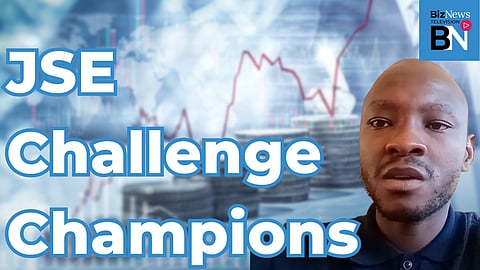Turning rural school kids into investment champions - Sizwe Mtsweni of Mpumelelo Secondary School
A rural school in Mpumalanga, Mpumelelo Secondary, has repeatedly performed in the JSE Investment Challenge, a national competition where young people engage in simulated trading using virtual portfolios valued at R1 million. The challenge runs from March to September and attracts more than 66,000 participants from 859 schools and universities. Behind Mpumelelo’s success is Sizwe Mtsweni, a teacher at the school who teaches business studies and tourism. In an interview with BizNews, Mtsweni spoke about his investment strategies and how he mentors his students. He explained that beyond the usual challenge of balancing academics and the competition, many of his learners live far from school and don’t have devices, and even if they do, they often don’t have data. As for the mindset he tries to instil. Mtsweni, who returned to teach at his alma mater, says he’s not interested in wearing expensive brands, he’s more interested in owning one.
Sign up for your early morning brew of the BizNews Insider to keep you up to speed with the content that matters. The newsletter will land in your inbox at 5:30am weekdays. Register here.
Support South Africa's bastion of independent journalism, offering balanced insights on investments, business, and the political economy, by joining BizNews Premium. Register here.
If you prefer WhatsApp for updates, sign up to the BizNews channel here.
Watch here
Listen here

